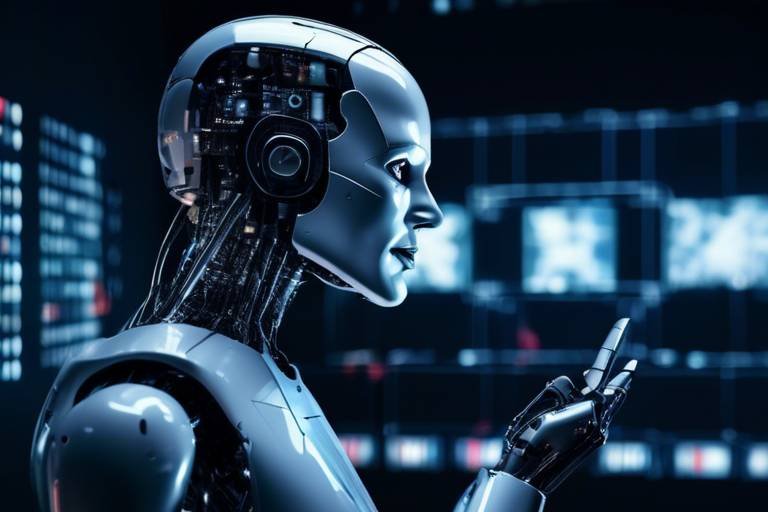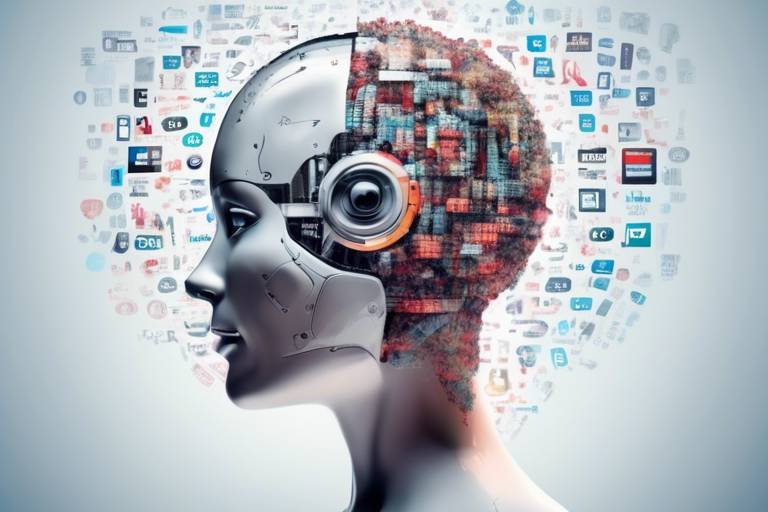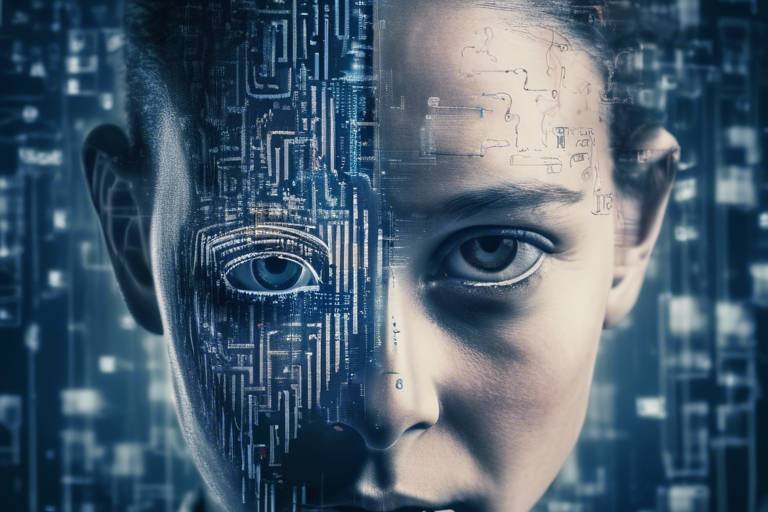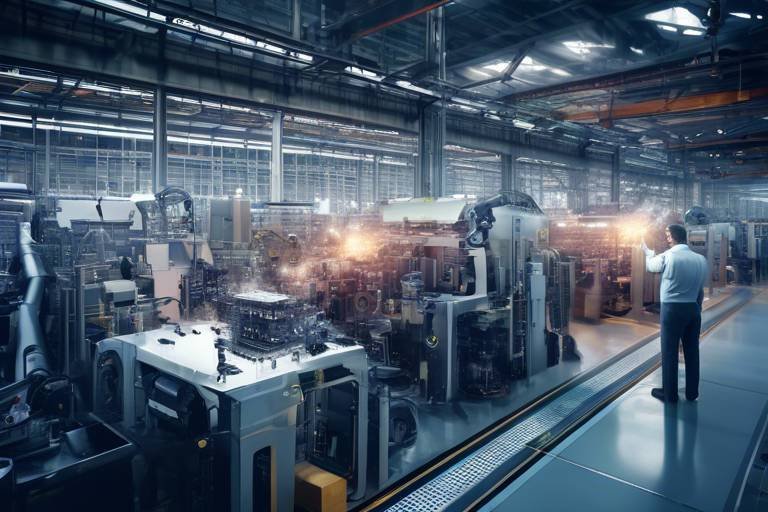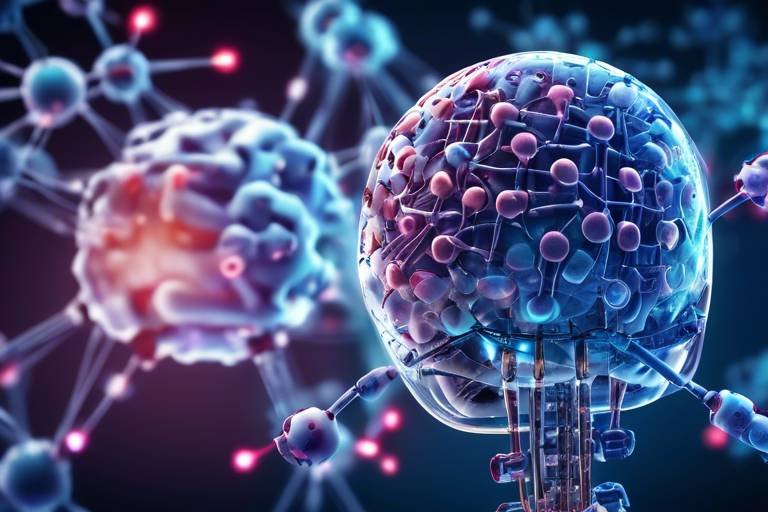The Growing Influence of Artificial Intelligence
Artificial Intelligence (AI) is no longer just a concept from science fiction; it has become a transformative force that is reshaping our reality in ways we could only dream of a few decades ago. From the moment we wake up to the sound of our AI-powered assistants to the time we go to bed, AI is embedded in our daily lives, enhancing our experiences and streamlining our tasks. But what does this mean for the future? As we delve deeper into the expanding role of AI across various sectors, it’s essential to understand not only its benefits but also the challenges it presents. The implications of AI are vast, affecting everything from employment and healthcare to education and beyond. Are we ready to embrace this change, or will we be left grappling with its consequences?
In the realm of employment, AI is a double-edged sword. On one hand, it creates new job opportunities that didn't exist before, such as AI trainers and data analysts. On the other hand, it threatens to render certain roles obsolete, particularly those that involve repetitive tasks. This shift is prompting a reevaluation of workforce dynamics and necessitating a focus on reskilling and upskilling. Just as the industrial revolution transformed the job market, AI is ushering in a new era of employment that requires adaptability and innovation.
When we turn our attention to healthcare, the impact of AI becomes even more profound. Imagine a world where doctors can diagnose diseases with unprecedented accuracy, thanks to AI-driven diagnostic tools. AI is revolutionizing the medical field by not only enhancing diagnostics but also personalizing treatment plans and optimizing hospital operations. For instance, predictive analytics powered by AI is changing how healthcare providers anticipate patient needs, leading to improved outcomes. This technology can forecast health trends by analyzing vast amounts of data, enabling proactive care that can save lives.
Moreover, AI-driven patient monitoring systems allow for real-time tracking of health metrics, significantly enhancing patient care. Continuous health surveillance through AI ensures that doctors are always informed about their patients’ conditions, enabling timely interventions. In the realm of drug discovery, AI is accelerating the process by analyzing complex datasets and predicting molecular behavior, thus shortening development timelines for new medications. This is not just a technological advancement; it is a potential lifesaver for countless individuals waiting for effective treatments.
But the influence of AI doesn’t stop there. In education, AI is reshaping learning experiences through personalized learning paths and intelligent tutoring systems. Imagine a classroom where every student receives tailored educational content based on their unique learning style and pace. Adaptive learning technologies use AI to modify educational content according to student performance, fostering a more effective learning environment. This personalization not only enhances student engagement but also helps educators focus on what they do best: teaching.
Furthermore, AI is streamlining administrative tasks in educational institutions, allowing educators to concentrate on their students rather than getting bogged down by paperwork. This operational efficiency is crucial in today’s fast-paced educational landscape, where time is of the essence. By automating routine tasks, AI frees up valuable resources that can be redirected towards enhancing the quality of education.
As we look to the future, it is clear that the influence of AI will only continue to grow. While it brings with it a host of opportunities, it also poses significant challenges that society must address. The question we must ask ourselves is: are we prepared to navigate this brave new world? With careful planning, ethical considerations, and a commitment to continuous learning, we can harness the power of AI to build a better tomorrow.
- What is Artificial Intelligence? - AI refers to the simulation of human intelligence in machines that are programmed to think and learn like humans.
- How is AI impacting employment? - AI creates new job opportunities while also making some roles obsolete, necessitating a shift in workforce skills.
- What role does AI play in healthcare? - AI enhances diagnostics, personalizes treatment, and optimizes hospital operations, leading to better patient outcomes.
- Can AI improve educational experiences? - Yes, AI personalizes learning paths and streamlines administrative tasks, making education more effective and accessible.

Impact on Employment
The rise of artificial intelligence (AI) technology is nothing short of a revolution in the job market. It's like watching a new wave crash onto the shore, reshaping everything in its path. On one hand, AI is creating exciting new opportunities that didn't exist a decade ago, while on the other, it's rendering certain roles obsolete. This dual nature of AI's impact on employment trends is a hot topic that sparks debate among economists, technologists, and workers alike. So, what does this mean for the workforce of the future?
To begin with, let's consider the jobs that are being transformed or even eliminated by AI. Routine tasks, especially those that involve repetitive actions, are increasingly being automated. For instance, roles in manufacturing, data entry, and even customer service are witnessing a significant shift. According to a recent report, approximately 60% of jobs in these sectors could be affected by automation in the next two decades. However, it's not all doom and gloom. While some jobs may disappear, new roles are emerging that require skills in AI management, data analysis, and machine learning. The key here is adaptability.
Moreover, the integration of AI into various industries is leading to the creation of hybrid jobs—positions that combine human skills with AI capabilities. Imagine a marketing professional who uses AI tools to analyze consumer behavior and tailor campaigns more effectively. This blending of human intuition and machine efficiency is not just enhancing productivity but also creating a more dynamic work environment. In fact, a study by the World Economic Forum suggests that by 2025, AI could create 97 million new jobs globally, many of which will be in fields that we can't even imagine today.
But how can workers prepare for this shift? Here are a few strategies to consider:
- Embrace Lifelong Learning: Continuous education is essential. Upskilling in areas like data analysis, AI programming, and digital marketing can open doors to new opportunities.
- Stay Informed: Keeping up with industry trends and technological advancements will help you anticipate changes and adapt accordingly.
- Network and Collaborate: Building connections with professionals in tech can provide insights and opportunities in the evolving job landscape.
As we navigate this transformation, it's vital to understand that the impact of AI on employment is not merely about job loss or creation; it's about a fundamental shift in how we work. The future workforce will likely be more collaborative, where humans and machines work side by side to achieve common goals. This evolution requires a cultural shift in how we perceive work and the value of human skills that machines cannot replicate—creativity, emotional intelligence, and critical thinking.
In conclusion, while the rise of AI presents challenges to the traditional job market, it also offers a plethora of opportunities for those willing to adapt. The future of work will be a blend of human ingenuity and machine efficiency, leading to a more productive and innovative society. So, are you ready to ride the wave of change?

AI in Healthcare
The integration of artificial intelligence in healthcare is nothing short of revolutionary. Imagine walking into a hospital where the doctors have a superpower: the ability to analyze vast amounts of data in seconds, predict patient needs, and tailor treatments specifically for you. This is not science fiction; it's the reality that AI is creating in the medical field. From enhancing diagnostics to personalizing treatment plans, AI is reshaping how we approach healthcare, making it more efficient and effective.
One of the most exciting applications of AI in healthcare is in the realm of diagnostics. Traditional methods can often be time-consuming and prone to human error. However, AI algorithms can sift through thousands of medical images, lab results, and patient histories to identify patterns that even the most experienced doctors might miss. This not only speeds up the diagnosis process but also increases accuracy, ultimately leading to better patient outcomes. For instance, AI systems have shown remarkable success in detecting conditions like cancer in its early stages, thereby improving survival rates.
Moreover, AI is playing a pivotal role in personalizing treatment. Gone are the days of one-size-fits-all medicine. With AI, healthcare providers can analyze genetic information, lifestyle factors, and even environmental influences to create customized treatment plans. This approach not only enhances the efficacy of treatments but also minimizes side effects, making the patient's journey through recovery smoother and more manageable. Imagine a world where your treatment is as unique as your DNA—AI is making that possible.
Another fascinating aspect of AI in healthcare is its use in predictive analytics. This technology allows healthcare providers to anticipate patient needs by analyzing historical data and identifying trends. For example, by examining patterns in patient visits, AI can predict potential health crises before they occur, allowing for proactive interventions. This capability is particularly beneficial in managing chronic diseases, where timely interventions can significantly improve quality of life.
AI-driven patient monitoring systems are also transforming healthcare by enabling real-time tracking of vital health metrics. Imagine being able to monitor your heart rate, blood pressure, and other critical indicators from the comfort of your home, with alerts sent directly to your healthcare provider if something goes awry. This continuous health surveillance not only empowers patients but also enhances the overall quality of care. It allows for immediate responses to any concerning changes, potentially saving lives.
Furthermore, AI is revolutionizing the drug discovery process. Traditionally, developing new medications can take years, if not decades. However, AI accelerates this timeline by analyzing vast datasets to predict how different compounds will behave. By simulating interactions at the molecular level, researchers can identify promising candidates much faster than before. This means that new treatments can reach the market more quickly, addressing urgent health needs and improving patient outcomes.
As we delve deeper into the realm of personalized medicine, it's clear that AI is a game-changer. By leveraging machine learning algorithms, healthcare providers can offer treatments tailored specifically to individual patients. This level of customization not only enhances the effectiveness of treatments but also reduces the likelihood of adverse reactions. In a world where every patient is unique, AI is ensuring that healthcare is as personal as it should be.
In summary, the impact of AI on healthcare is profound and multifaceted. From enhancing diagnostics to personalizing medication, AI is paving the way for a future where healthcare is more efficient, accurate, and tailored to individual needs. As we continue to explore the potential of this technology, the possibilities seem endless, and the benefits for patients and providers alike are undeniable.
- What is the role of AI in healthcare? AI helps in diagnostics, personalizing treatment, predictive analytics, patient monitoring, and drug discovery.
- How does AI improve patient care? By providing real-time monitoring and personalized treatment options, AI enhances patient outcomes and satisfaction.
- Is AI replacing doctors in healthcare? No, AI is designed to assist healthcare professionals, not replace them. It provides tools that help doctors make better decisions.
- What are the challenges of implementing AI in healthcare? Challenges include data privacy concerns, the need for regulatory frameworks, and ensuring that AI systems are transparent and explainable.

Predictive Analytics
Predictive analytics, powered by artificial intelligence, is like having a crystal ball in the healthcare industry. Imagine being able to foresee potential health issues before they even arise—sounds like magic, right? But this is the reality that AI is bringing to the table. By analyzing vast amounts of data from various sources, predictive analytics allows healthcare providers to anticipate patient needs and trends, leading to better health outcomes. This technology utilizes algorithms and statistical models to identify patterns and correlations in patient data, enabling healthcare professionals to make informed decisions quickly.
For instance, consider a patient with a history of heart disease. Predictive analytics can analyze their medical history, lifestyle factors, and even genetic information to forecast future health risks. This means that doctors can proactively manage their care, potentially preventing severe complications. It's akin to having a personal health coach that not only understands your past but also predicts your future health trajectory.
Moreover, predictive analytics isn't just about individual patient care; it also plays a crucial role in public health. By analyzing data on disease outbreaks, social determinants of health, and environmental factors, healthcare systems can better allocate resources and implement preventive measures. This proactive approach can significantly reduce the burden on healthcare facilities and improve community health outcomes.
To illustrate the impact of predictive analytics, let's look at a table showcasing how different healthcare sectors benefit from this technology:
| Healthcare Sector | Benefits of Predictive Analytics |
|---|---|
| Emergency Departments | Improved triage processes and reduced wait times. |
| Chronic Disease Management | Personalized treatment plans and early intervention strategies. |
| Public Health | Enhanced disease surveillance and resource allocation. |
| Pharmaceuticals | Informed decision-making in drug development and clinical trials. |
As we delve deeper into the potential of predictive analytics, it's essential to consider the ethical implications and challenges that come along with it. While the benefits are substantial, issues such as data privacy and algorithmic bias must be addressed to ensure that predictive analytics is used responsibly in healthcare. After all, with great power comes great responsibility.
In conclusion, predictive analytics is not just a technological advancement; it represents a fundamental shift in how healthcare is delivered. By harnessing the power of AI, healthcare providers can not only enhance patient care but also contribute to the overall improvement of public health. It's an exciting time to be in the healthcare sector, as we stand on the brink of a new era driven by data and intelligence.
- What is predictive analytics in healthcare?
Predictive analytics in healthcare refers to the use of AI and data analysis to forecast patient outcomes and health trends, allowing for proactive management of care. - How does predictive analytics improve patient care?
By anticipating patient needs and potential health risks, predictive analytics enables healthcare providers to implement personalized treatment plans and preventive measures. - What are the challenges of using predictive analytics?
Challenges include data privacy concerns, the potential for algorithmic bias, and the need for healthcare professionals to interpret and act on data insights effectively.
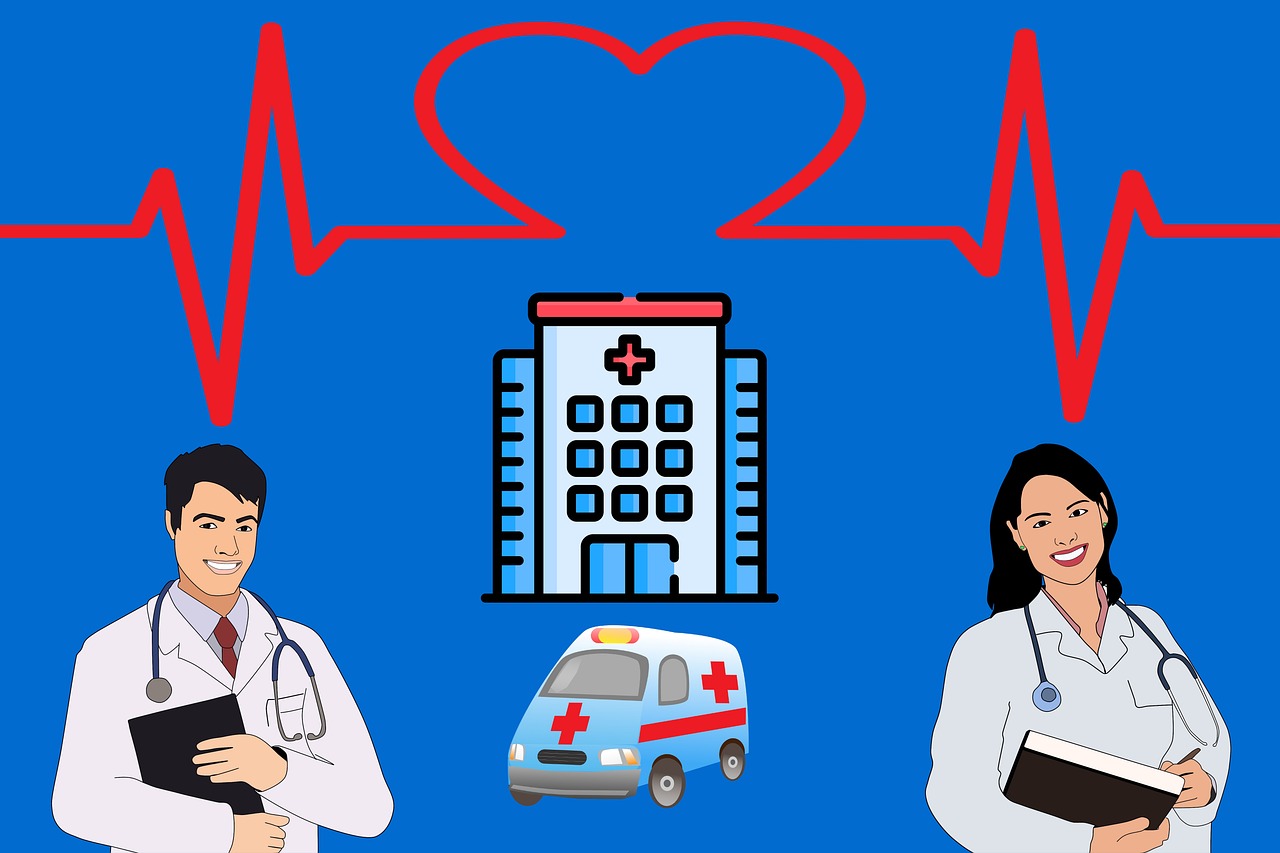
Patient Monitoring
The advent of artificial intelligence has brought about a revolution in the field of patient monitoring, transforming how healthcare providers track and respond to patients' health metrics. Imagine a world where your health is continuously monitored, not just during hospital visits but in real-time, allowing for immediate interventions when necessary. AI-driven systems are making this a reality, enhancing patient care and ensuring that medical professionals can focus on what truly matters—the well-being of their patients.
One of the key benefits of AI in patient monitoring is its ability to analyze vast amounts of data quickly and accurately. This capability enables healthcare providers to detect anomalies or changes in a patient's condition almost instantaneously. For instance, wearable devices equipped with AI algorithms can track vital signs such as heart rate, blood pressure, and oxygen saturation. When these metrics fall outside of normal ranges, the system can alert medical staff, potentially preventing serious health complications.
Moreover, AI-powered monitoring systems are not just reactive; they can be predictive as well. By utilizing historical data and machine learning techniques, these systems can forecast potential health issues before they arise. This predictive capability is crucial in managing chronic conditions, where timely intervention can make a significant difference in patient outcomes. For example, a patient with diabetes might benefit from a system that predicts blood sugar fluctuations, allowing for proactive adjustments in medication or diet.
To illustrate the impact of AI on patient monitoring, consider the following table that highlights the differences between traditional monitoring methods and AI-enhanced systems:
| Feature | Traditional Monitoring | AI-Enhanced Monitoring |
|---|---|---|
| Data Collection | Manual entry and periodic checks | Continuous, automated data collection |
| Response Time | Delayed response based on scheduled visits | Immediate alerts for abnormal readings |
| Predictive Analysis | Limited to historical data | Real-time predictions based on data trends |
| Patient Engagement | Minimal interaction | Interactive and informative feedback |
In addition to enhancing clinical outcomes, AI-driven patient monitoring systems also empower patients by providing them with insights into their health. Patients can receive alerts on their mobile devices, allowing them to take charge of their health proactively. This engagement fosters a sense of responsibility and encourages healthier lifestyle choices. For instance, if a patient is alerted about an irregular heart rate, they can seek medical advice sooner rather than later, potentially averting a crisis.
However, the integration of AI in patient monitoring is not without its challenges. Issues such as data privacy, the need for robust cybersecurity measures, and the potential for over-reliance on technology must be addressed. Healthcare providers must ensure that patient data is protected and that AI systems are used to augment, not replace, the human touch in healthcare. After all, technology should enhance the patient experience, not diminish it.
In conclusion, AI-driven patient monitoring systems are reshaping the landscape of healthcare. By providing real-time data, predictive analytics, and empowering patients, these technologies are paving the way for a more proactive and personalized approach to healthcare. As we continue to embrace the possibilities offered by AI, the future of patient monitoring looks promising, with the potential to save lives and improve health outcomes across the board.
- What is AI-driven patient monitoring?
AI-driven patient monitoring refers to the use of artificial intelligence technologies to continuously track and analyze patients' health metrics in real-time, allowing for immediate medical interventions when necessary. - How does AI improve patient care?
AI improves patient care by providing healthcare providers with timely alerts about patients' health changes, enabling predictive analysis for chronic conditions, and enhancing patient engagement through personalized insights. - Are there any risks associated with AI in healthcare?
Yes, risks include data privacy concerns, cybersecurity threats, and the potential for over-reliance on technology, which may diminish the importance of human interaction in patient care.

Drug Discovery
The world of has been revolutionized by the advent of artificial intelligence (AI), fundamentally altering how researchers approach the development of new medications. Traditionally, drug discovery was a lengthy and costly process, often taking over a decade and billions of dollars to bring a single drug to market. However, with the integration of AI, this timeline is being dramatically shortened. AI algorithms can analyze vast datasets, identifying patterns and predicting molecular behavior in ways that were previously unimaginable.
One of the key advantages of AI in drug discovery is its ability to sift through enormous amounts of biological and chemical data. For instance, AI can evaluate thousands of compounds and their interactions with biological targets in a fraction of the time it would take a human researcher. This capability not only accelerates the identification of promising drug candidates but also enhances the precision of predictions regarding their effectiveness and safety.
Moreover, AI can assist in virtual screening, where it simulates how different compounds will interact with specific targets in the body. This process helps researchers narrow down the list of potential drug candidates before moving into costly laboratory testing. By employing machine learning techniques, AI systems can continuously improve their predictions based on new data, making them increasingly accurate over time.
To illustrate the impact of AI on drug discovery, consider the following table that highlights some of the ways AI is enhancing various stages of the drug development process:
| Stage of Drug Development | AI Application | Benefits |
|---|---|---|
| Target Identification | Data mining and analysis | Faster identification of disease targets |
| Compound Screening | Virtual screening algorithms | Reduced time to identify lead compounds |
| Preclinical Testing | Predictive modeling | Improved safety and efficacy predictions |
| Clinical Trials | Patient stratification | More effective trial designs and outcomes |
Another fascinating aspect of AI in drug discovery is its role in repurposing existing drugs. By analyzing existing medications and their effects on various diseases, AI can uncover new therapeutic uses for drugs that are already on the market. This not only saves time and resources but also offers patients faster access to treatment options that have already been proven safe for use.
As we look to the future, the potential for AI in drug discovery appears limitless. The technology is evolving rapidly, and with advancements in computational power and data availability, we can expect even more significant breakthroughs. The fusion of AI with other technologies, such as genomics and biotechnology, will likely lead to a new era of personalized medicine, where treatments are tailored to the unique genetic makeup of each patient.
In conclusion, the integration of artificial intelligence into drug discovery is not just a trend; it is a transformative force that is reshaping the pharmaceutical landscape. By streamlining processes, enhancing precision, and accelerating timelines, AI is paving the way for a future where new, effective treatments are developed more swiftly and efficiently than ever before. The implications for healthcare are profound, promising better outcomes and improved quality of life for patients around the globe.
- What is drug discovery? Drug discovery is the process of identifying new medications based on the biological targets.
- How does AI impact drug discovery? AI enhances the speed and accuracy of identifying potential drug candidates and predicting their effectiveness.
- Can AI help in repurposing existing drugs? Yes, AI can analyze existing drugs to find new therapeutic uses, making the process quicker and more efficient.
- What are the future implications of AI in drug discovery? The future holds potential for personalized medicine, where treatments are tailored to individual genetic profiles, improving patient outcomes.

Personalized Medicine
is not just a buzzword; it's a revolutionary approach that tailors medical treatment to the individual characteristics of each patient. Imagine a world where your treatment plan is as unique as your DNA. This concept is becoming a reality thanks to the advancements in artificial intelligence (AI) and data analytics. By leveraging vast amounts of data from genetic information, lifestyle choices, and environmental factors, healthcare providers can devise a treatment strategy that is specifically designed for you.
At the heart of personalized medicine is the ability to analyze and interpret complex biological data. AI algorithms sift through enormous datasets to identify patterns that would be impossible for humans to detect. This means that doctors can predict how a patient will respond to a particular treatment based on their genetic makeup. For example, certain cancer therapies are now being tailored to the specific genetic mutations present in a patient's tumor, significantly improving treatment efficacy and minimizing adverse effects.
Moreover, the integration of AI in personalized medicine allows for real-time adjustments to treatment plans. Imagine being able to monitor your response to medication through wearable technology, which sends data back to your healthcare provider. This data can then be analyzed by AI systems to determine if your treatment needs tweaking. It's like having a personal health assistant who is always on-call, ensuring that you receive the most effective care possible.
One of the most exciting developments in this field is the use of predictive modeling. This involves using AI to forecast health outcomes based on individual patient profiles. For instance, if you have a family history of diabetes, AI can analyze your current health metrics and lifestyle choices to predict your risk and suggest preventive measures tailored to your situation. This proactive approach not only enhances patient outcomes but also reduces the burden on healthcare systems by preventing diseases before they develop.
However, as with any groundbreaking technology, there are challenges to overcome. Issues such as data privacy, ethical considerations, and the need for extensive clinical trials to validate AI-driven treatments must be addressed. As we move forward, it’s crucial to strike a balance between innovation and patient safety.
In summary, personalized medicine powered by AI is transforming healthcare into a more individualized, efficient, and effective system. The future holds immense potential for further advancements, making it an exciting time to be involved in healthcare. As we continue to explore this frontier, one can only wonder: what will the next breakthrough look like?
- What is personalized medicine? Personalized medicine is an approach that customizes healthcare treatments based on individual patient characteristics, including genetics and lifestyle.
- How does AI contribute to personalized medicine? AI analyzes large datasets to identify patterns and predict how patients will respond to specific treatments, enabling tailored healthcare solutions.
- What are the benefits of personalized medicine? Benefits include improved treatment efficacy, reduced side effects, and proactive health management through predictive analytics.
- Are there any risks associated with personalized medicine? Yes, challenges such as data privacy, ethical concerns, and the need for thorough clinical validation exist and must be addressed.

AI in Education
The integration of artificial intelligence in education is not just a trend; it's a revolution that is reshaping how we learn and teach. Imagine walking into a classroom where every student has a personalized learning experience tailored to their unique needs and pace. Sounds like something out of a sci-fi movie, right? But this is the reality that AI is creating today. From intelligent tutoring systems to adaptive learning technologies, AI is making education more accessible and engaging for everyone.
One of the most significant impacts of AI in education is the ability to create personalized learning paths. Traditional education often adopts a one-size-fits-all approach, which can leave many students behind. However, AI technologies analyze students' strengths and weaknesses, allowing educators to customize the curriculum. For instance, if a student struggles with math but excels in reading, AI can adjust their learning path to focus more on math improvement while maintaining their reading level. This dynamic approach not only boosts confidence but also enhances overall learning outcomes.
Furthermore, AI is playing a pivotal role in intelligent tutoring systems. These systems provide students with immediate feedback and support, mimicking the experience of having a personal tutor. For example, platforms like Khan Academy and Duolingo utilize AI algorithms to adapt to each learner's pace and style. Students can ask questions and receive answers in real-time, which can significantly enhance their understanding of complex subjects. This level of interaction was unimaginable a few years ago, but now, it's becoming a staple in modern education.
Another area where AI shines is in administrative efficiency. Educational institutions often grapple with a myriad of administrative tasks, from grading assignments to managing student records. AI can automate these processes, freeing up valuable time for educators to focus on what they do best—teaching. For instance, AI-powered systems can grade multiple-choice tests in seconds, allowing teachers to spend more time on personalized instruction rather than paperwork. This shift not only improves efficiency but also enhances the overall educational experience for both teachers and students.
Moreover, AI technologies are enhancing accessibility in education. Students with disabilities can benefit from AI tools that provide tailored assistance. For example, speech recognition software helps students with writing difficulties to communicate their ideas more effectively. Similarly, AI-driven applications can convert text to speech, making learning materials accessible to visually impaired students. By breaking down barriers, AI is ensuring that quality education is within reach for all learners.
As we look to the future, the potential for AI in education is boundless. With advancements in machine learning and data analytics, we can expect even more sophisticated tools that will transform learning environments. Imagine virtual classrooms where AI not only teaches but also engages students in interactive simulations, making learning a thrilling adventure. The possibilities are endless, and the journey has only just begun.
- How does AI personalize learning? AI analyzes individual student data to adapt educational content to their specific needs, allowing for a customized learning experience.
- What are intelligent tutoring systems? These are AI-driven platforms that provide real-time feedback and assistance to students, mimicking the benefits of having a personal tutor.
- Can AI improve administrative tasks in schools? Yes, AI can automate routine administrative tasks, allowing educators to focus more on teaching and less on paperwork.
- How does AI enhance accessibility in education? AI tools can assist students with disabilities by providing tailored support, such as speech recognition and text-to-speech applications.
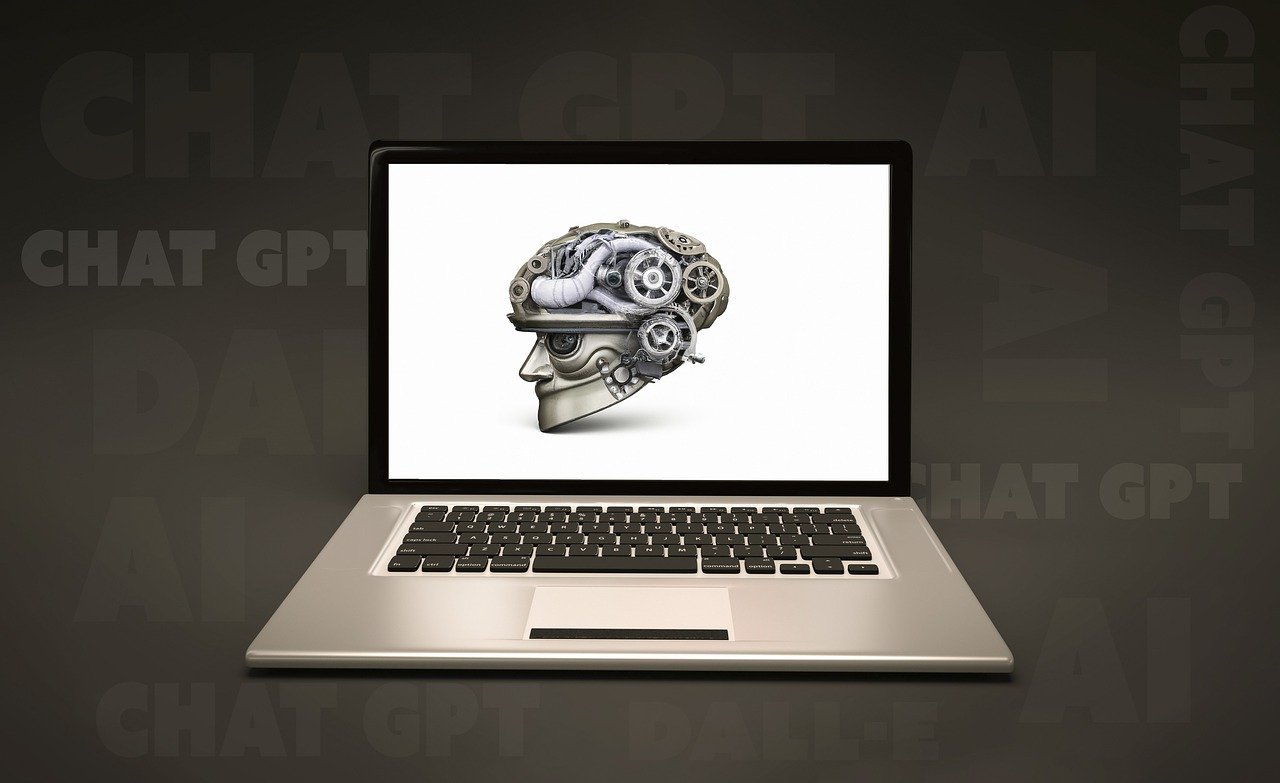
Adaptive Learning Technologies
Adaptive learning technologies are making waves in the educational landscape, fundamentally changing how students engage with content and learn new skills. Imagine walking into a classroom where every student has a personalized learning experience tailored just for them. That's the power of adaptive learning! These technologies utilize algorithms and data analytics to assess a student’s strengths, weaknesses, and learning pace, allowing for a customized educational journey.
One of the most fascinating aspects of adaptive learning is its ability to create a dynamic learning environment. As students interact with the content, the system continuously collects data on their performance. This data is then analyzed to adjust the difficulty level of the material, suggest additional resources, or even provide instant feedback. For instance, if a student struggles with a particular math concept, the system might offer supplementary exercises or explanations to help them grasp the topic better. This real-time adjustment keeps students engaged and motivated, reducing frustration and fostering a love for learning.
Moreover, adaptive learning technologies can cater to a diverse range of learning styles. Some students may thrive with visual aids, while others might prefer auditory instruction. By offering different types of content and learning modalities, these systems ensure that all students have the opportunity to succeed. Here’s a quick look at how adaptive learning can benefit various types of learners:
- Visual Learners: Benefit from infographics, videos, and interactive simulations.
- Auditory Learners: Gain from podcasts, discussions, and verbal instructions.
- Kinesthetic Learners: Engage through hands-on activities and real-world applications.
This approach not only enhances individual learning experiences but also promotes a sense of ownership among students. They become active participants in their education rather than passive recipients of information. Teachers, too, can leverage these technologies to better understand their students' needs. With detailed analytics, educators can identify trends and patterns in classroom performance, allowing them to tailor their teaching strategies accordingly. This synergy between technology and teaching is paving the way for a more effective educational system.
As we look to the future, the potential of adaptive learning technologies seems limitless. Imagine a classroom where AI-powered systems can predict learning outcomes and suggest curriculum adjustments in real-time. This could lead to a more inclusive education system where every student, regardless of their background or learning ability, can achieve their full potential. The integration of these technologies is not just a trend; it's a revolution that could redefine educational methodologies for generations to come.
- What is adaptive learning technology? Adaptive learning technology refers to educational systems that adapt the content and pace of learning based on individual student performance and preferences.
- How does adaptive learning benefit students? It provides personalized learning experiences, enhances engagement, and allows for immediate feedback, catering to various learning styles.
- Can teachers use adaptive learning tools effectively? Absolutely! These tools offer valuable insights into student performance, enabling teachers to tailor their instruction to meet specific needs.
- What subjects can benefit from adaptive learning? Adaptive learning can be applied across various subjects, including math, science, language arts, and more, making it versatile for different learning environments.

Administrative Efficiency
In today's fast-paced educational landscape, is more crucial than ever. Schools and universities are inundated with a multitude of tasks, from managing student records to scheduling classes and handling communications. As institutions strive to do more with less, artificial intelligence (AI) emerges as a powerful ally in streamlining these processes. Imagine a world where educators can focus on teaching rather than drowning in paperwork—this is the promise that AI holds for administrative operations.
AI technologies are capable of automating repetitive tasks, which not only saves time but also reduces the likelihood of human error. For instance, chatbots powered by AI can handle routine inquiries from students and parents, freeing up staff to concentrate on more complex issues. This shift allows educational institutions to allocate their human resources more effectively. The result? A more engaged workforce that can dedicate their energy to enhancing the educational experience.
Furthermore, AI can analyze vast amounts of data to provide insights that were previously time-consuming to gather. For example, by evaluating student performance metrics, AI systems can identify trends and suggest areas for improvement. This data-driven approach enables administrators to make informed decisions that can lead to better educational outcomes. Consider a scenario where a school uses AI to analyze attendance patterns; it can proactively address issues such as chronic absenteeism before they escalate.
Another significant area where AI enhances administrative efficiency is in resource allocation. By predicting enrollment trends and resource needs, AI tools can help institutions optimize their budgets and staffing levels. For example, if an AI system forecasts an increase in student enrollment in a particular program, the administration can proactively hire additional faculty or invest in more classroom resources. This kind of foresight is invaluable in maintaining a high-quality educational environment.
To illustrate the impact of AI on administrative efficiency, consider the following table that highlights key areas where AI can make a difference:
| Area | AI Application | Benefits |
|---|---|---|
| Student Inquiries | Chatbots | 24/7 support, reduced workload for staff |
| Data Analysis | Predictive Analytics | Informed decision-making, improved student outcomes |
| Resource Management | Forecasting Tools | Optimized budgets, efficient staffing |
In conclusion, the integration of AI in administrative tasks not only enhances efficiency but also fosters a more dynamic and responsive educational environment. As AI technology continues to evolve, its potential to transform the administrative landscape becomes even more apparent. Schools that embrace these innovations will not only improve their operational effectiveness but also create a more engaging and supportive atmosphere for students and educators alike.
- How does AI improve administrative tasks in schools? AI automates repetitive tasks, analyzes data for insights, and helps in resource allocation, allowing staff to focus on more important educational activities.
- What are some examples of AI applications in education? Examples include chatbots for student inquiries, predictive analytics for performance tracking, and forecasting tools for resource management.
- Can AI help in making better decisions for educational institutions? Yes, by providing data-driven insights, AI enables administrators to make informed decisions that can enhance educational outcomes.
Frequently Asked Questions
- What is the impact of AI on employment?
AI is reshaping job markets by automating routine tasks, which can lead to the obsolescence of certain jobs. However, it also creates new roles that require different skills, thus transforming the workforce dynamics. It's a bit like a game of musical chairs; while some chairs are removed, new ones are added, but you need to adapt quickly to find a seat!
- How is AI being used in healthcare?
AI is revolutionizing healthcare in numerous ways, including enhancing diagnostics, personalizing treatment plans, and optimizing hospital operations. Think of AI as a super-smart assistant that can analyze vast amounts of medical data to help doctors make better decisions and improve patient outcomes.
- What role does predictive analytics play in healthcare?
Predictive analytics powered by AI helps healthcare providers anticipate patient needs by analyzing trends and patterns in health data. It’s like having a crystal ball that allows doctors to foresee potential health issues before they arise, leading to proactive care and better health management.
- How does AI enhance patient monitoring?
AI-driven patient monitoring systems provide real-time tracking of health metrics, allowing for timely interventions when necessary. Imagine having a personal health coach that constantly checks your vitals and alerts healthcare providers if something seems off—this is the future of patient care!
- In what ways does AI assist in drug discovery?
AI accelerates the drug discovery process by analyzing extensive datasets and predicting how different molecules will behave. This means that new medications can be developed much faster than before, potentially saving lives and making treatments more accessible.
- What is personalized medicine and how does AI contribute to it?
Personalized medicine uses AI to tailor treatments to individual patients based on their unique genetic makeup and health history. It’s like customizing a meal to fit your dietary needs—AI ensures that each patient receives the most effective treatment with fewer side effects.
- How is AI changing education?
AI is enhancing education by creating personalized learning experiences and intelligent tutoring systems that adapt to individual student needs. It’s akin to having a personal tutor who knows exactly how you learn best and tailors lessons just for you!
- What are adaptive learning technologies?
Adaptive learning technologies utilize AI to modify educational content based on student performance. This fosters a more engaging and effective learning environment, making education feel less like a one-size-fits-all approach and more like a tailored suit designed just for you.
- How does AI improve administrative efficiency in schools?
AI streamlines administrative tasks in educational institutions, allowing educators to spend more time on teaching and less on paperwork. Think of it as having a digital assistant that handles all the mundane tasks, freeing up teachers to focus on what they do best—educating!





